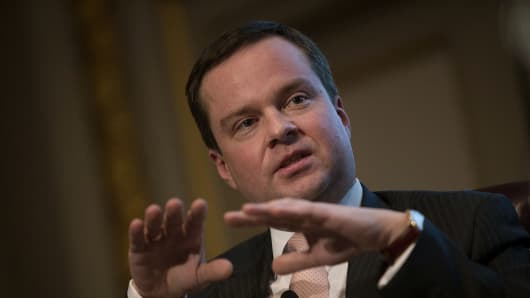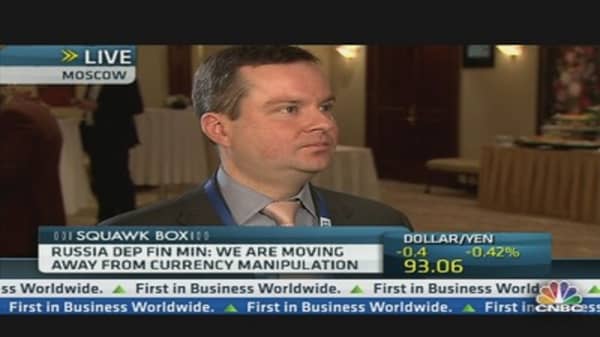As tension over exchange rates grows and central bankers across the globe try to cool talk of a "currency war", Russia on Wednesday denied it was manipulating its currency.
"We are actively moving away from any manipulation of the currency," Alexei Moiseev, Russia's Deputy Finance Minister told CNBC ahead of the G20 meeting in Moscow on Wednesday. "Last fall, the central bank officially declared that Russia is moving towards a flexible exchange rate so we have a target of 2015 to commit to make no interventions in the exchange market. "
Russia has been accused of maintaining barriers to free trade, despite the fact that the country joined the World Trade Organization in 2012. Moiseev denied that this was tantamount to a currency war by proxy.
The country has been slow to remove trade tariffs on imports for the national industries it views as most vulnerable to foreign competition, such as the automobile sector, but Moiseev insisted his country was playing by the rules.
"We are definitely [playing] it by the book, " he said. "We're definitely not violating the rules themselves and everybody does it to a certain extent. This is our first year in the WTO and there will be a transition period…we need to learn how to live under WTO rules, but I can tell you that everything we do we double check [with the organization]."
Confusion over the G7's policy to combat the risks of a "currency war" has caused volatility in the currency markets this week.




